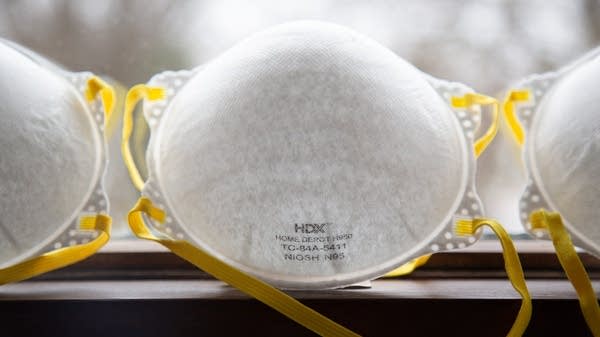A doctor answers questions on omicron plateauing, breakthroughs, N95s, kids at school

NIOSH-approved N95 masks are recommended to prevent the transmission of the COVID-19 omicron variant.
Jennifer Swanson | NPR
Go Deeper.
Create an account or log in to save stories.
Like this?
Thanks for liking this story! We have added it to a list of your favorite stories.


